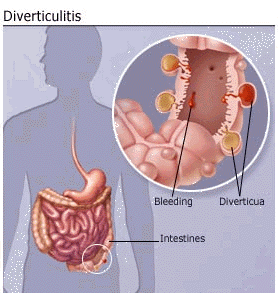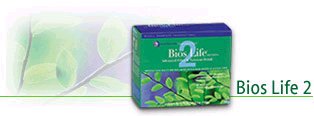Effective Diverticulitis Diet for Prevention
Can I Prevent Diverticulitis
and Improve My Health?

Do you need a diverticulitis diet? The best preventive action you can take against diverticulitis, of course, is to keep from developing the small sacs called diverticula.
The question is, "How do you do that?"
If you can modify your diet and lifestyle, you have a good chance of preventing diverticula. This page provides you with the some of the foods that you should avoid; you know, the foods that may taste and seem good at the time, but ruin the rest of your day and make you feel terrible. Then we will discuss the types of food and supplementation you should focus on so you can thrive in spite of diverticulitis.
In other words, we learn what goes on the list of "good stuff" we can eat without much concern. You'll get a diverticulitis diet you can "live" with!
Foods To Avoid in Your Diverticulitis Diet!
You know what happens when we eat the wrong foods. So, let's target those foods and avoid them. Avoid refined foods such as white flour, white rice, and other processed foods. The key is processed foods. So much of our foods are processed , that this can be difficult. It is recommended that you make a list of the foods you eat on a daily basis. If you are having trouble making the list, go to your freezer, refrigerator and pantry. You probably have a lot of processed foods. Stay away from them and you will feel better. Contrary to popular wisdom, it is not necessary to avoid nuts and seeds; they are no more likely than other foods to become caught in diverticula.
A diverticulitis diet will give you the urge to move your bowels. So, don't delay or ignore it. Regular exercise can help the muscles in your intestine retain their tone, which encourages regular bowel movements. Don't use suppositories for constipation, because your system may become addicted to them. Prunes and prune juice are good natural laxatives.
Foods To Include in Your Diverticulitis Diet!
A diverticulitis diet should include whole-grain breads, oatmeal, bran cereals, fibrous fresh fruits and vegetables. If you have tried this, especially for several months, weeks, or even days, you know the challenges of getting enough of the right stuff. A diet to prevent diverticulitis is not easy. You have to be really dedicated and consistent. Sometimes, one slip up in your diet, just at one meal, can make you feel terrible. The good news is that there is an easier way: a way to meet your goals of an effective diverticulitis diet which includes a balance of good foods and supplementation. Supplementation is very important, because it is so difficult to eat everything you should every meal. But you know what happens if you don't!
If you are looking for an easier, more effective method to get the fiber you need, look to a pharmaceutical grade fiber product. Possibly the best product on the market is "Bios Life 2". It is a pharmaceutical grade, high quality fiber product developed at Stanford University by research scientists, tested at the world-renowned Cleveland Clinic, manufactured by the 100-year-old Rexall company, and distributed by Unicity. Interestingly enough, the research scientist at Stanford University were attempting to develop a product for diabetics. While they were successful in doing so, the product they developed also has proven to reduce cholesterol and benefit people with digestive disorders like diverticulitis and diverticulosis. "Bios Life 2" is under 2 U.S. patents and is listed in the Physician's Desk Reference (PDR).

Research:
The Clinical Studies are fascinating. "Bios Life 2" increases fiber intake with the best matrix of fibers available. Your body needs it.
What Else Goes Into A Diverticiultis Diet?
A successful diverticulitis diet must include water. Water is a fundamental need for all of us. Our bodies are comprised of approximately 66 percent fluid, and since we lose up to three quarts of water per day, this necessary element must be replenished daily. In fact, most experts recommend that we consume eight to 10 glasses of water each day. Make sure you drink plenty of fluids if you increase your intake of fiber, and take care to add fiber gradually. Adding fiber too quickly has some minor side effects. If this occurs, just stop taking the added fiber a couple of days and drink plenty of water. Then start the increase of fiber again, making sure you make your increases slowly. Once you successfully reach your fiber intake goal, you will feel great and your body will perform much better. Don't forget to adjust your diet to remove foods that are difficult for you to digest.
More Recommendations for Helping Prevent Diverticulitis
If you do your research, there are a few manufacturers that produce specially formulated teas to assist in moving your bowels.

The one I found success with is made by a company called Unicity. They manufacture a sweet-tasting blend of traditional Chinese and American herbs which aids the body's natural ability to cleanse itself of toxins. This special blend of herbs has been formulated and used with great success for many years. This tea is pleasant tasting and gentle on your system. To review your options,
click here to research the teas
that can help you the most. You have options to fight constipation. We recommend specially formulated teas that are available from quality nutraceutical companies.
Take your health into your hands. You have the ability to take control. Work with your physician and create a balance between the foods you eat the supplementation you use to keep your body healthy. Make sure your supplementation is manufactured by a quality company. A company you trust. Don't take your diverticulitis diet lightly. It is important.
Click Here To Find Out How Serious Diverticulitis Can Be
See Why a Diverticulitis Diet is Important